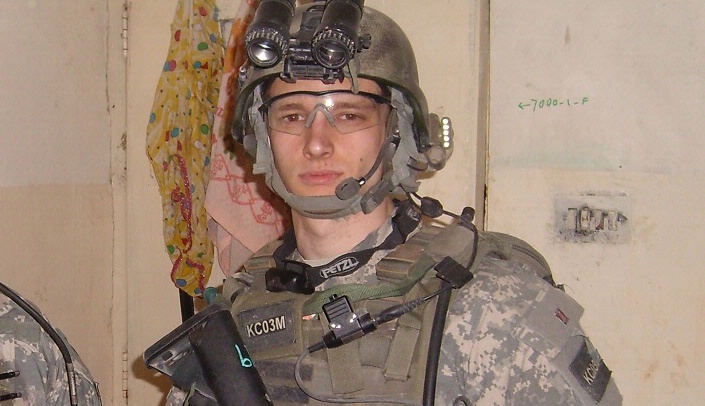On the night it all changed, there was an improvised explosive device (IED) blast in Baghdad, downtown. Marshall Bahr, who was then an Army Ranger, pulled a man out of a burning truck.
The man, a fellow Ranger, was in critical condition, the prognosis grim. Bahr, a medic for the elite special operations unit, worked furiously. But on the flight out on the UH-60 Black Hawk helicopter, the man lost consciousness. Bahr couldn’t help but think it: “He’s just fading away.”
But he got his fellow Ranger to the trauma center alive. “It felt like hours,” Bahr said. “But, it was just seven-and-a half-minutes.” There, the doctors took his report, then politely pushed him aside: “We’ve got it from here,” they told him.
As he stood there helpless, it hit him: He had to become one of them – a person who can take it the rest of the way.
He will. Today, he’s a UNMC medical school graduate. On Match Day he secured a residency in anesthesiology at University of Pittsburgh Medical Center. He hopes to land an eventual fellowship in chronic pain medicine.
Having seen firsthand the physical and mental injuries of returning military veterans, he wants to fight for their proper treatment and a change in national policy of pain management.
He wants to help returning vets take it the rest of the way.
Bahr got a jump on undergrad while still serving overseas, taking some classes online. He tells a story of mixing compounds for a chemistry final in a little room on an airstrip in Iraq. The other Rangers rolled their eyes: What’s “Doc” up to now?
Since coming home he’s drawn strength from a network established by the Pat Tillman Foundation. Bahr is one of nearly 350 Tillman Scholars nationwide, people with similar experiences and equally lofty goals. That’s important, because no one else knows what it was like to be there, and no one else knows what it is like to be back.
“As much as you try to explain it,” Bahr said, “no one will truly understand.”
The Ranger Bahr kept alive that night lost part of an arm, but as this story was being written, he was climbing Aconcagua, one of the world’s tallest peaks.
Now, as his career begins, Bahr can’t help but dream. Maybe he could work at Walter Reed National Military Medical Center. Maybe down the line help reform VA health care.
He knows he wants to be there for returning combat veterans.
This time he’ll be the one to take it from here.
